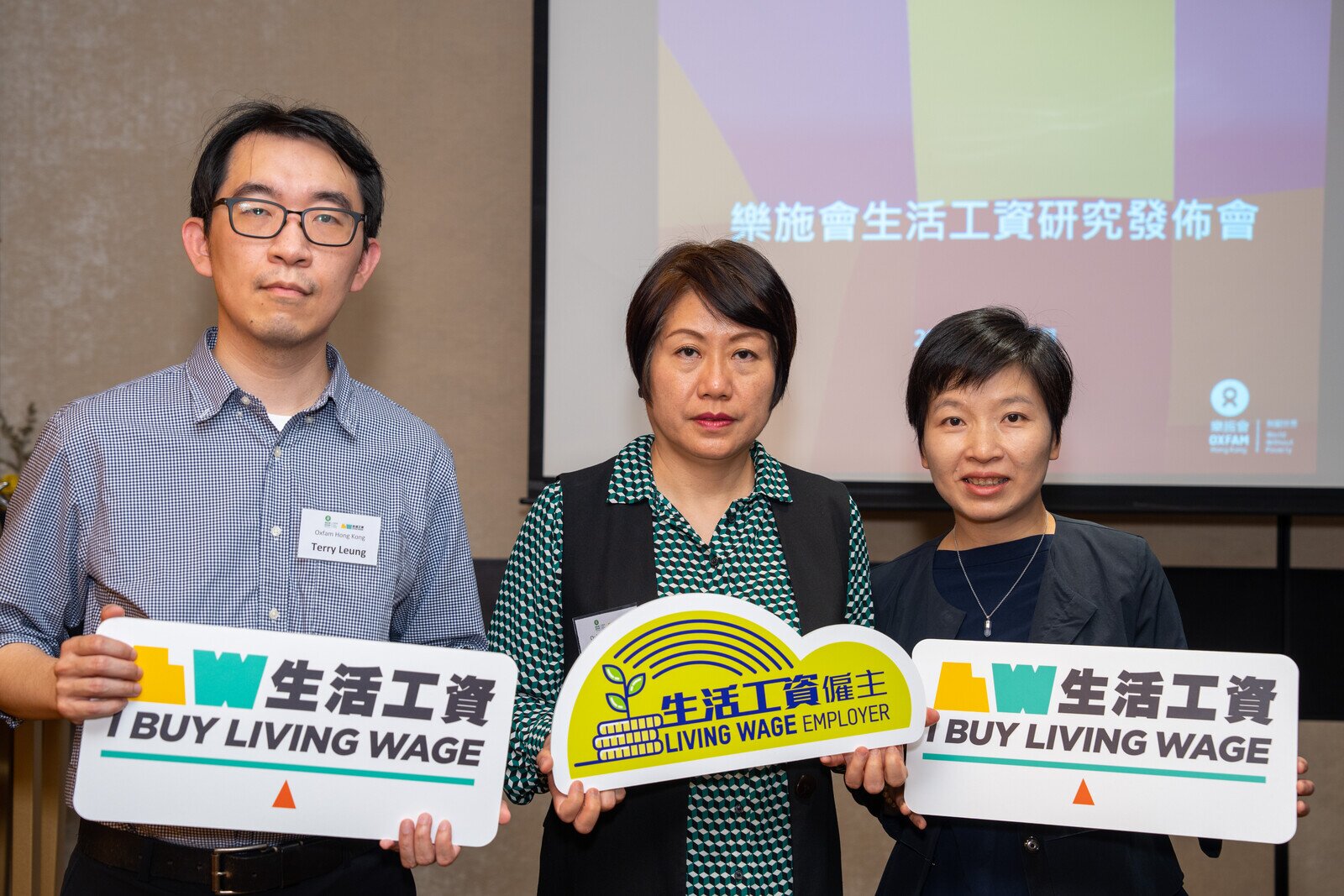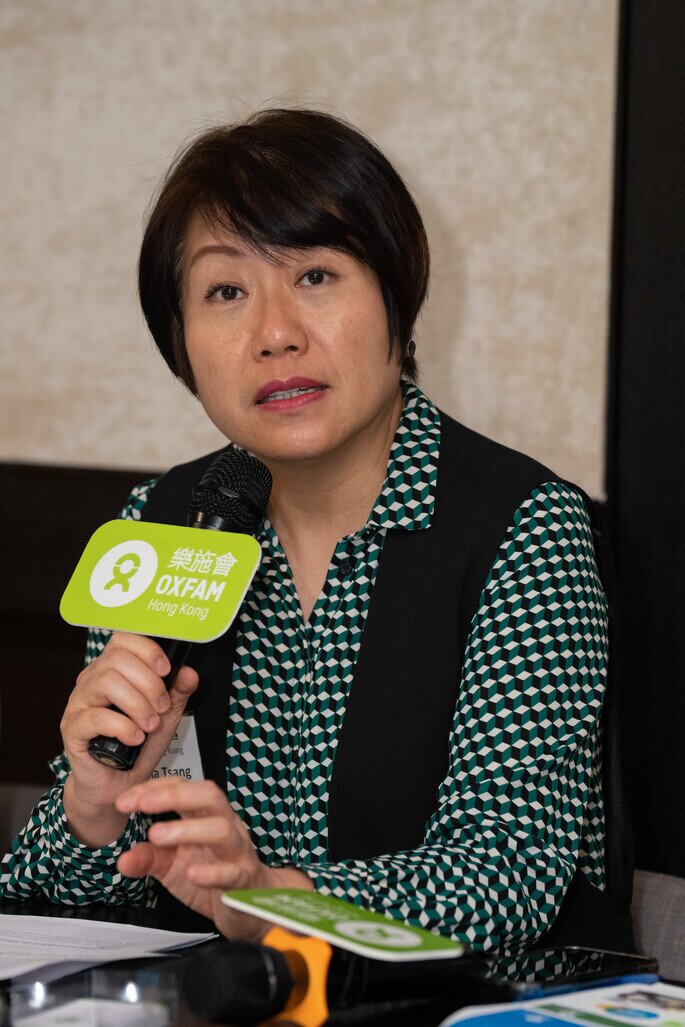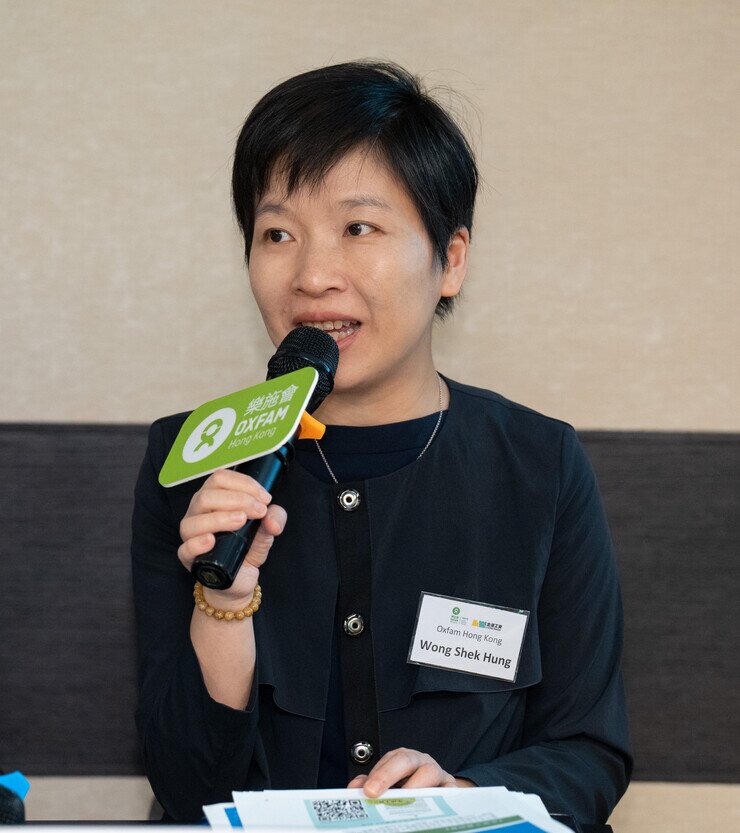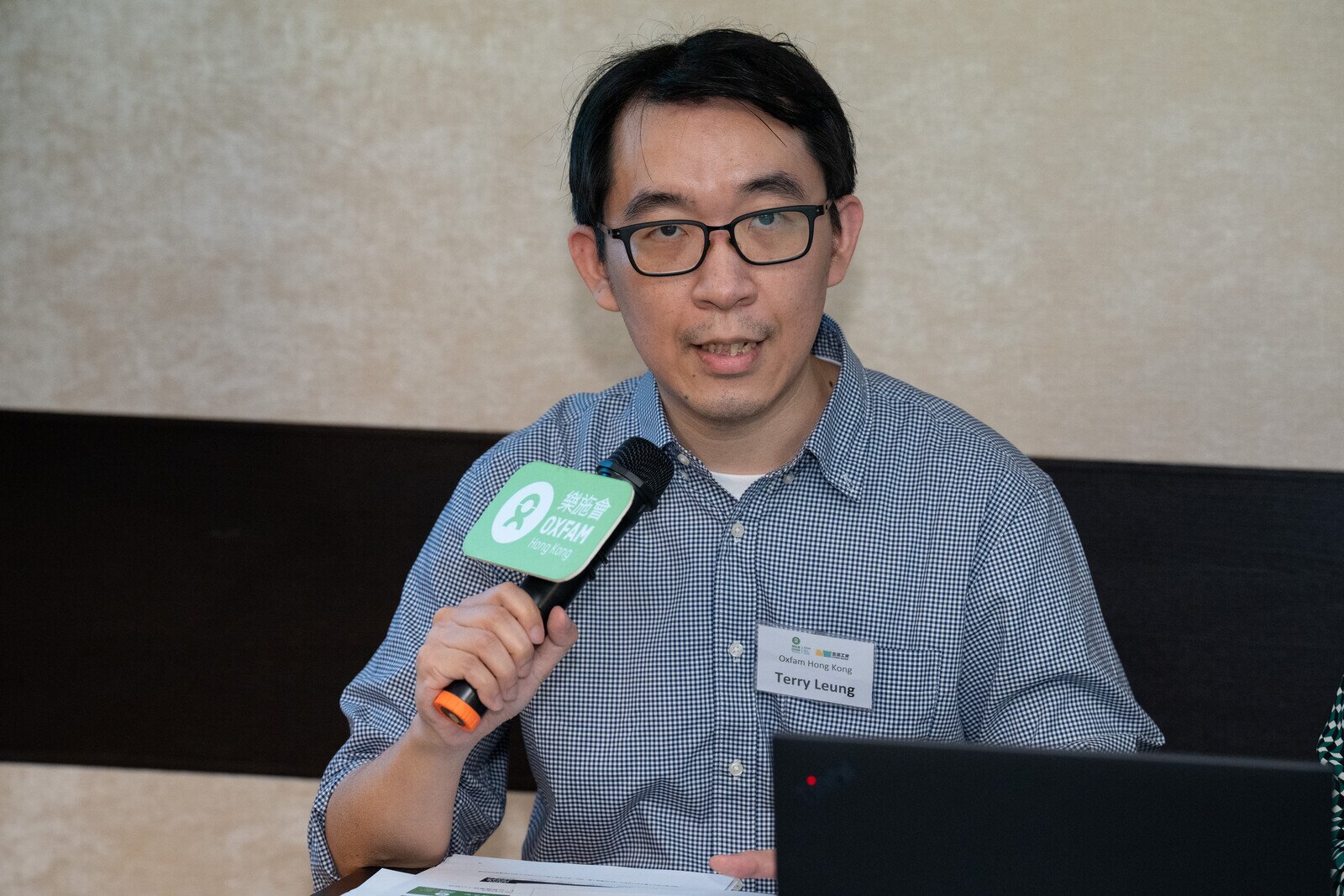27 APR 2023
Oxfam launches Living Wage Charter to encourage employers to pay living wage
Oxfam Hong Kong (OHK) released its research on the living wage today and announced the launch of the Living Wage Charter encourage more of them to pay their employees a living wage, which is higher than a minimum wage. This will not only ensure employees are able to meet both their and their families’ basic needs, but will also encourage people to (re-)enter the workforce to address labour shortages that have resulted after the pandemic.
Aside from OHK, employers currently supporting the Living Wage Charter include (in no particular order): Linklaters, KPMG, Burberry, Fresh Accounting, Asia Pacific Soccer Schools, Fortune Pharmacal and the Hong Kong University of Science and Technology.
A living wage refers to the salary an employee earns that not only allows them and their family members to meet their basic needs, but also enables them to live a decent life. This includes being able to afford a balanced diet, reasonable living space, social life, education, health care and being able to save up for an emergency. Paying a living wage would also ensure low-income households are able to move towards economic mobility. OHK reviews the living wage level annually according to the Class A Consumer Price Index; based on this data, OHK proposes that employers pay their employees no less than HK$60.1 in 2023.
Kalina Tsang, Director General of Oxfam Hong Kong, said: ‘In Hong Kong, the minimum wage is low as it does not take employees’ basic needs into account in a holistic manner. In 2018, we published the first report on the living wage in Hong Kong. It looked at wage levels through a people-centred perspective and calculated a living wage that would sufficiently meet the daily needs of families, help address poverty, and ensure workers could work in dignity.’
OHK’s ‘2022 Hong Kong Living Wage Study’, which is based on the statistics from the Census and Statistics Department, reveals that there are about 860,000 workers in Hong Kong who earn less than the living wage. This population accounts for more than 30 per cent of the total workforce and works mainly in the retail, catering, property management, security, and cleaning industries. The median wage levels are HK$55 (in both the retail and catering industries), and HK$48.7 (in the property management, security, and cleaning industry).
OHK also selected 170 low-income workers from these three industries for interviews through disproportionate stratified random sampling. About half of them earned hourly wages higher than the living wage, and half earned less than the living wage. Nearly 87 per cent of respondents said that food was the costliest expense item followed by housing. More than 70 per cent of respondents believed that earning a living wage could help them improve their lives, enhance their sense of belonging to the company, motivate them to perform better at work, and improve their commitment.
The Hong Kong University of Science and Technology is one of the employers that supports the Living Wage Charter, pays its outsourced cleaning workers a living wage and offers them employee benefits (including gifts during festivals, organising employee parties and such). Davis Bookhart, director of the Sustainability/Net-Zero Office at the university, said: ‘The living wage is a financial way of showing the employees that we respect them. You can really see [the impact it has had on them] not only in terms of the cleanliness and their performance, but also in staff happiness. The changes over the past several years definitely represent a “win-win-win” for us, the staff, and the contractor.’
OHK believes that all sectors in society play an important role in successfully promoting the living wage. In terms of companies, OHK encourages employers that are able to pay their employees a living wage to support the Living Wage Charter and uphold this commitment. The International Labor Organization’s research report points out that the living wage helps reduce turnover rates and even encourages people who were not working to return to the labour force, thereby reducing the risk of a labour shortage for companies, and ultimately achieving a win-win situation.
OHK believes that the government – the largest employer in Hong Kong – should take the lead in paying its outsourced workers a living wage, and should encourage other public sectors and public utilities to do the same.
Relying solely on companies to promote a living wage is not enough. That is why OHK is urging the government to promote the living wage on top of having the minimum wage in place. The organisation also believes the government should encourage employers to pay a living wage and help Hong Kong care more about its low-income workers.
The Living Wage Charter can be found on OHK’s website: https://bit.ly/3LfaTui. If employers are interested in supporting the Living Wage Charter, they can contact Ms. Chan at [email protected] or (852) 3120 5292.
OHK has produced a video about the living wage: https://youtu.be/7rKJuIEaJuU. The video features representatives from the Hong Kong University of Science and Technology, representatives of the outsourced cleaning company, and cleaners.
- Ends -
About Oxfam Hong Kong
Oxfam is a global organisation committed to creating a world without poverty through its advocacy, development and humanitarian work.
For media enquiries, please contact:
Samantha Wong (enquiries in English)
Senior Communications Officer
Phone: (852) 3120 5281
Email: [email protected]
Roni Chan (enquiries in Chinese)
Senior Communications Officer
Phone: (852) 3120 5222
Email: [email protected]








